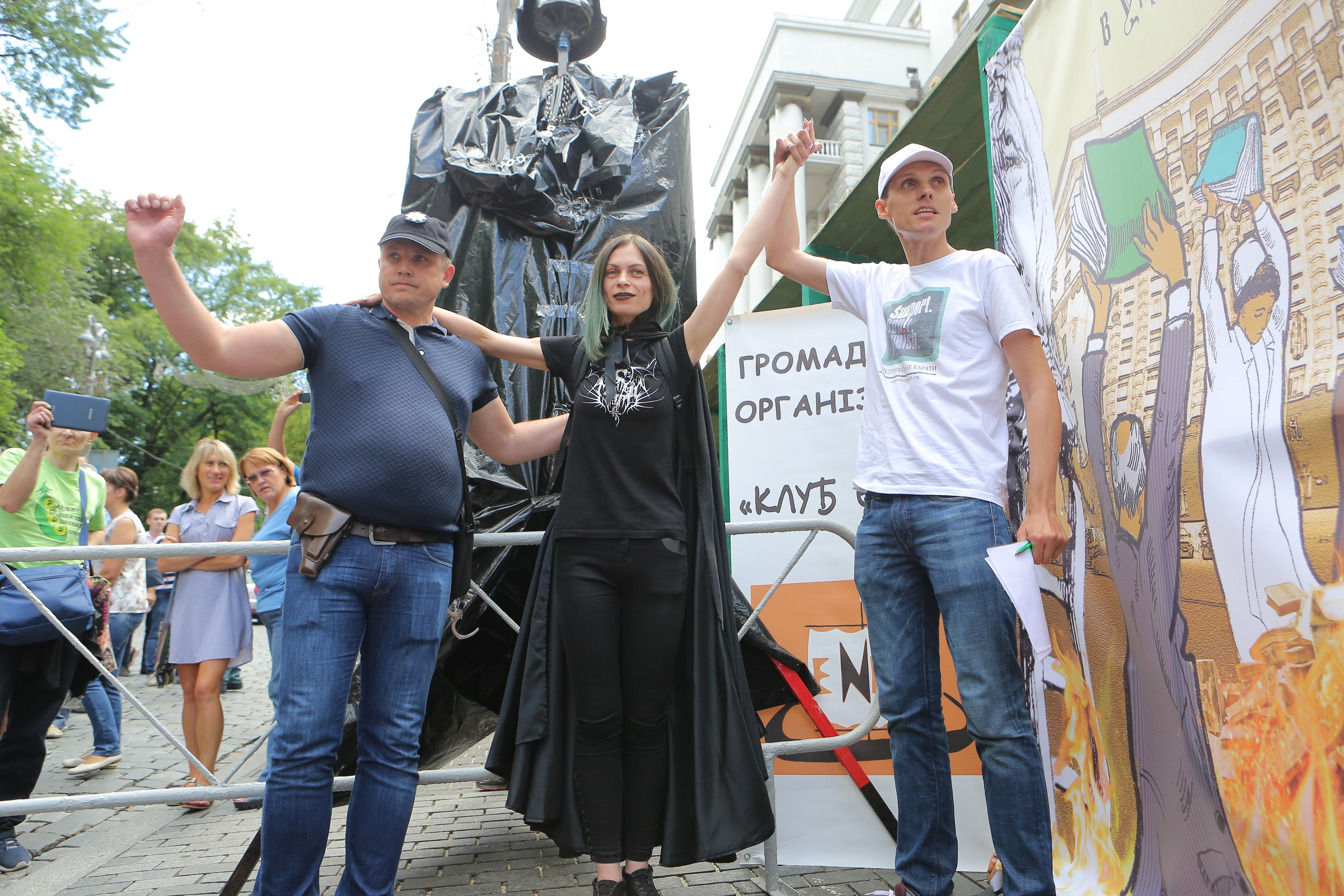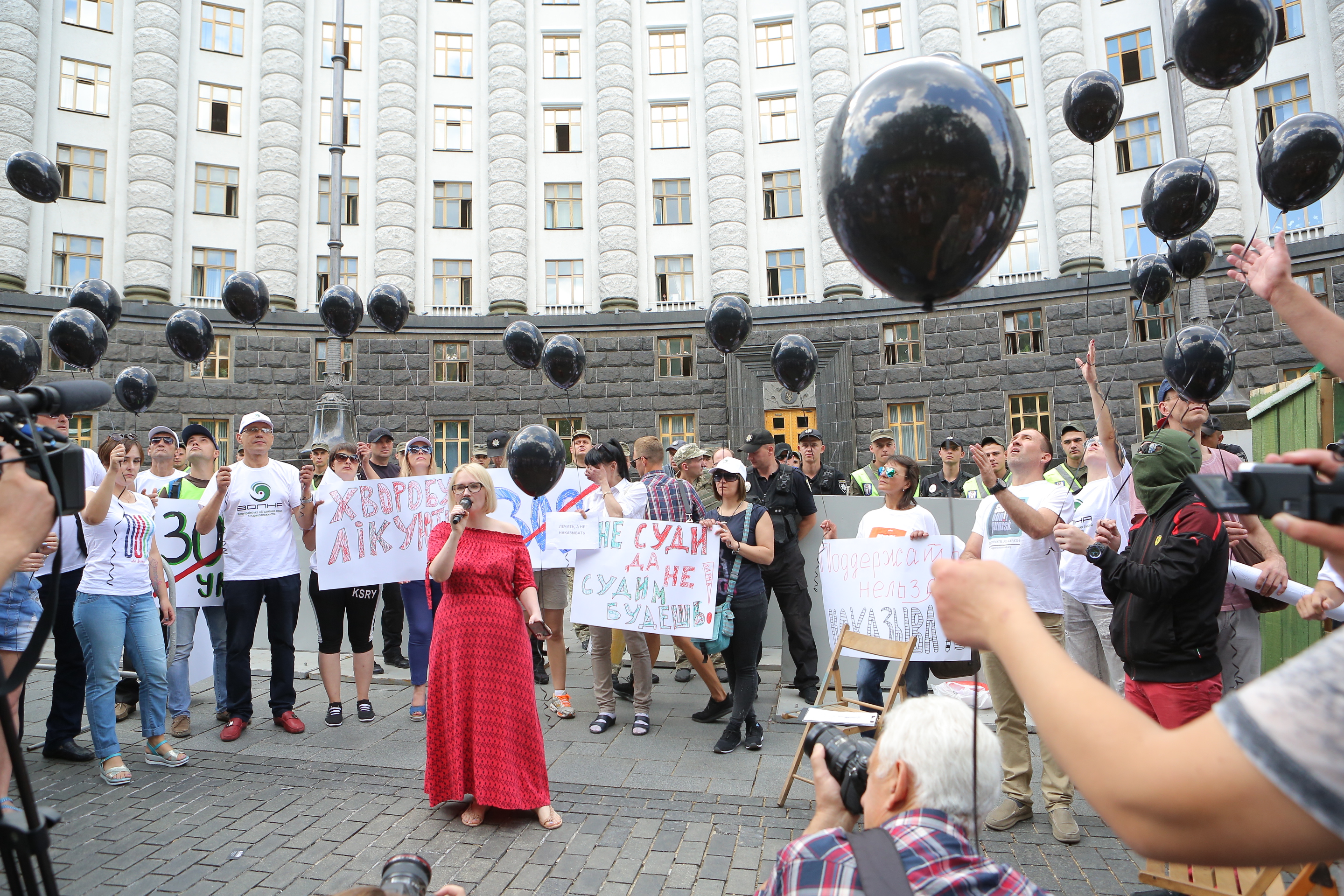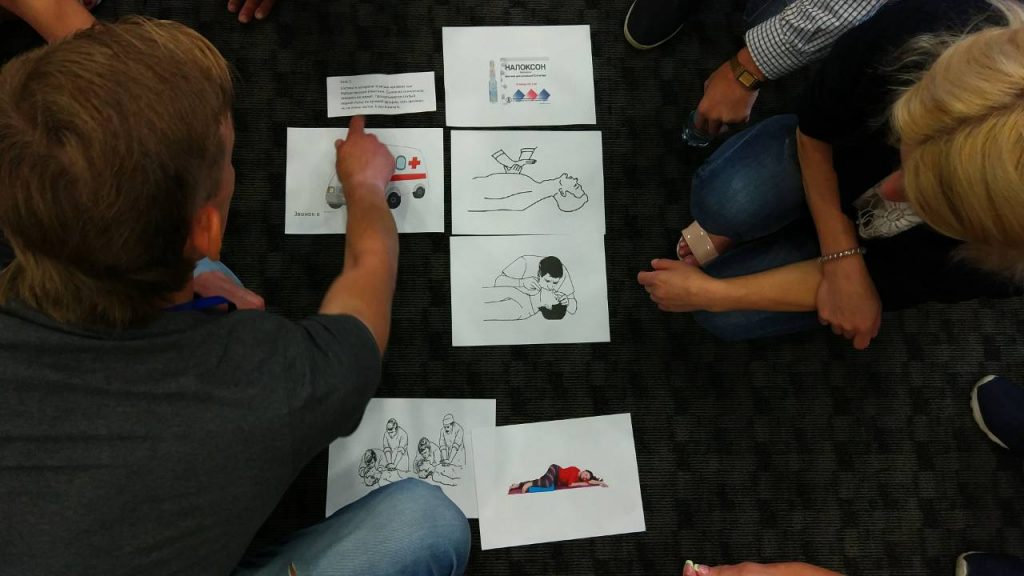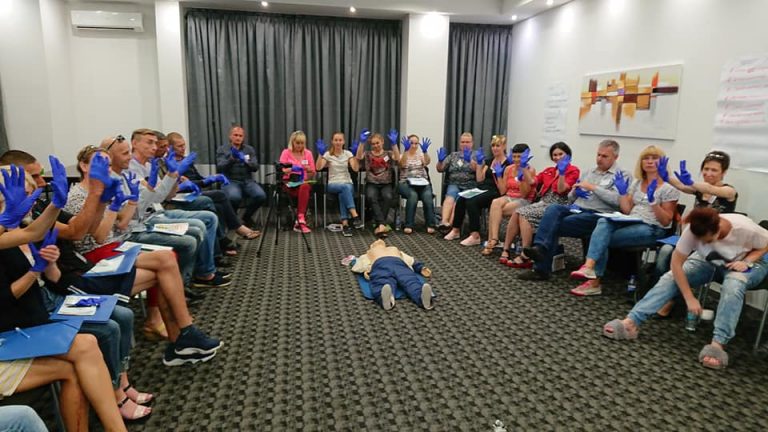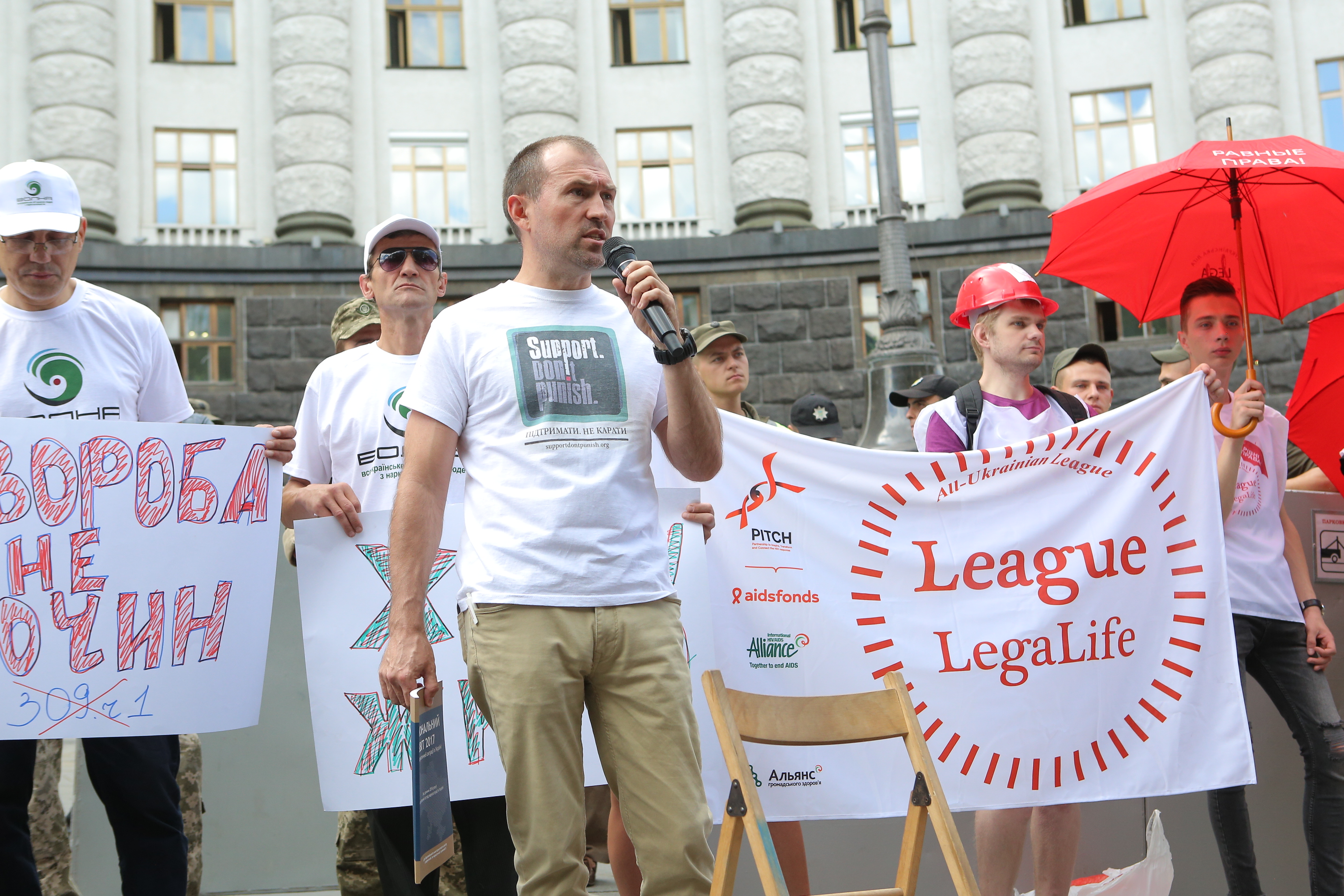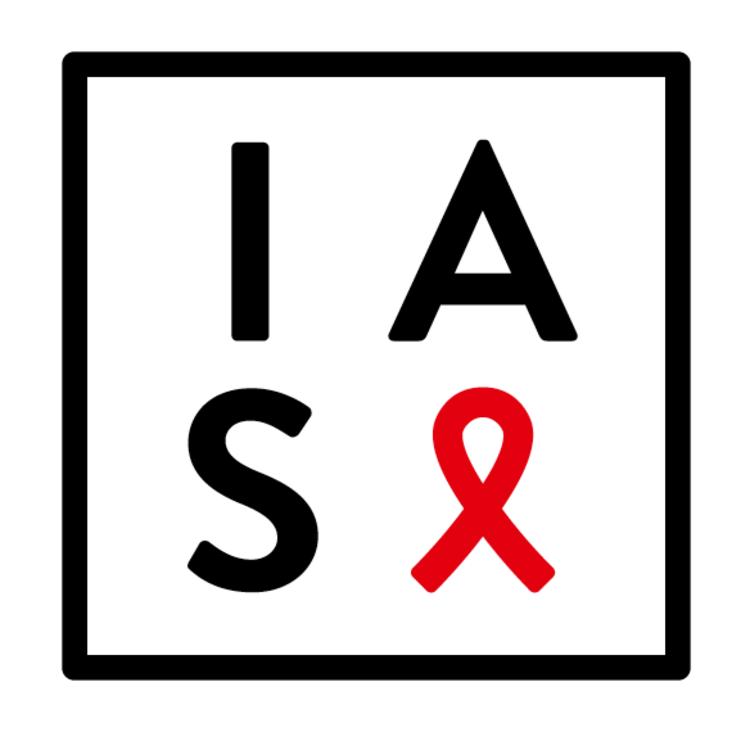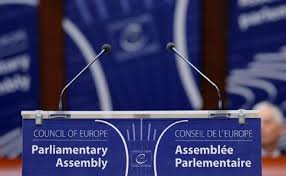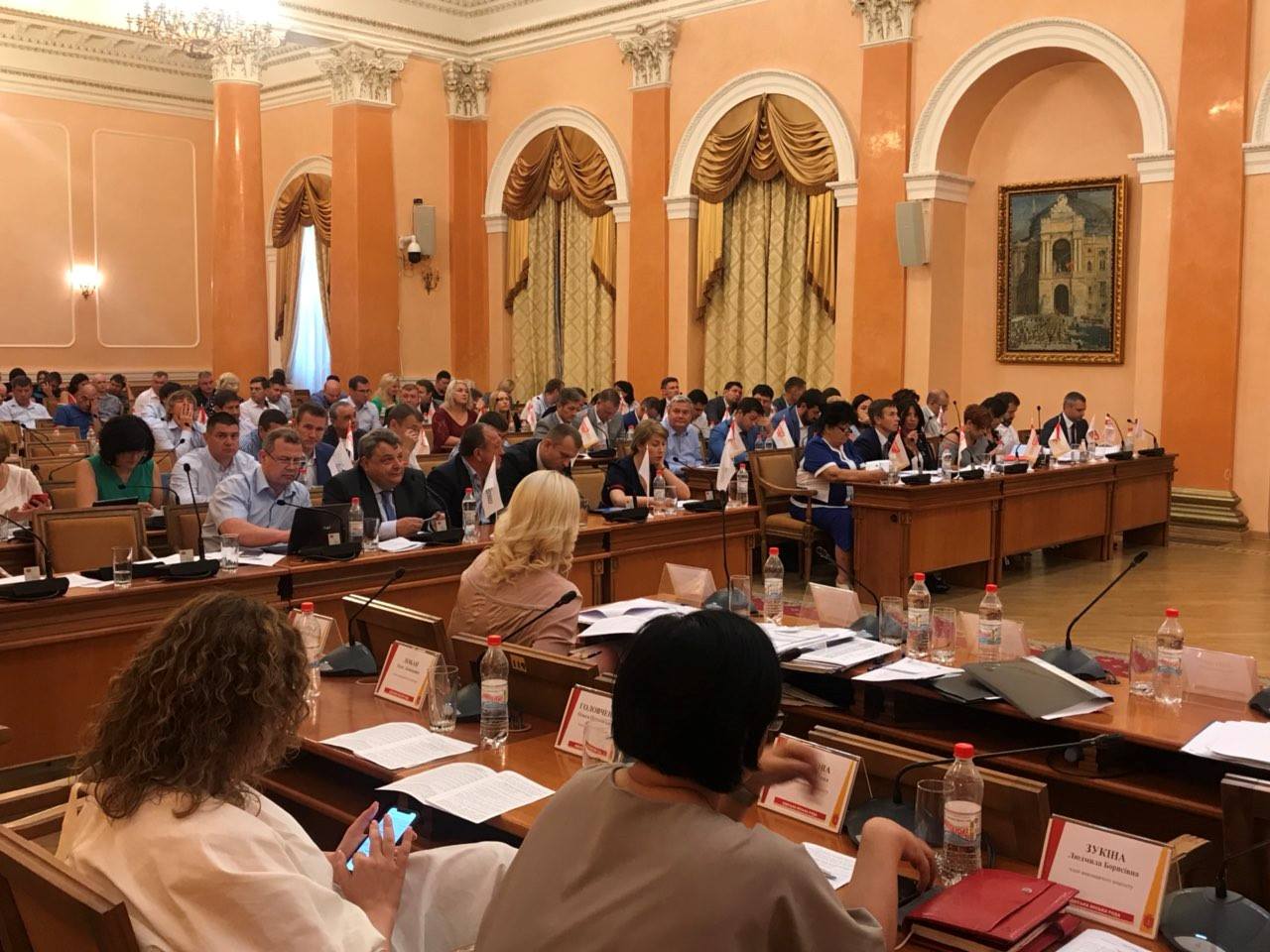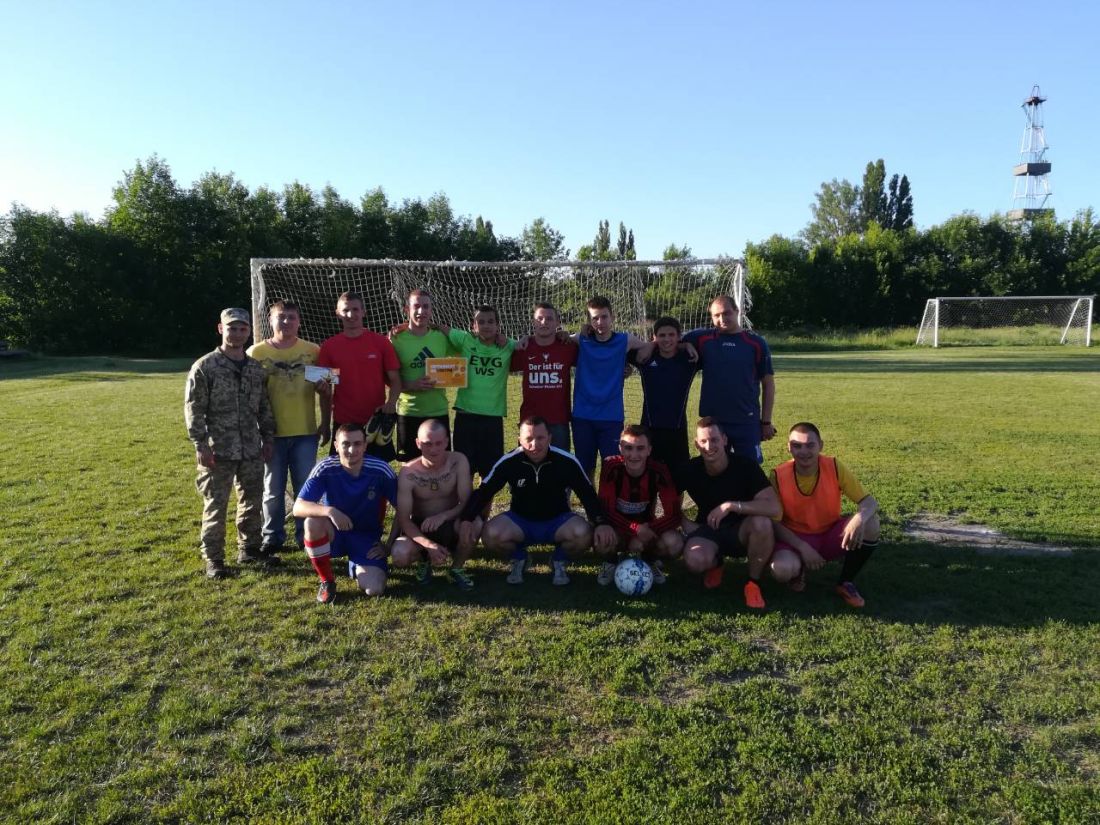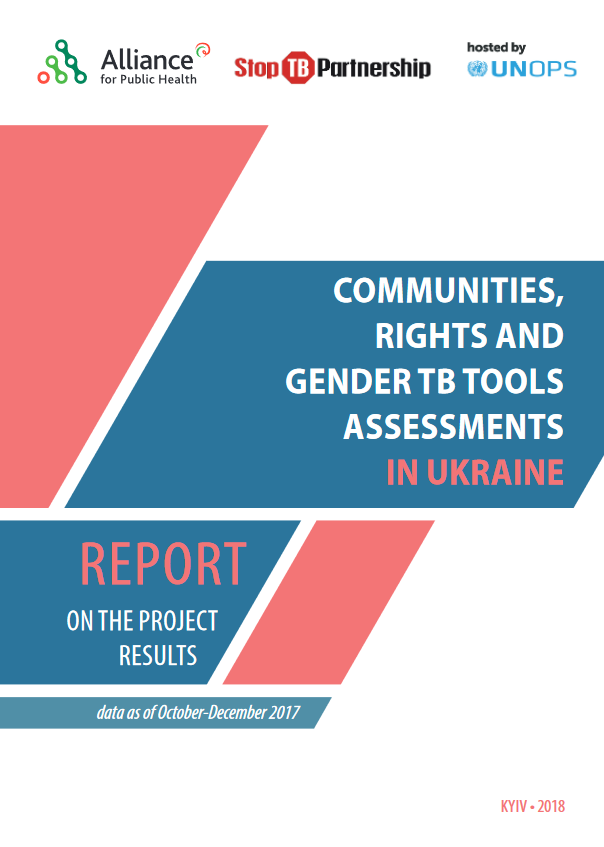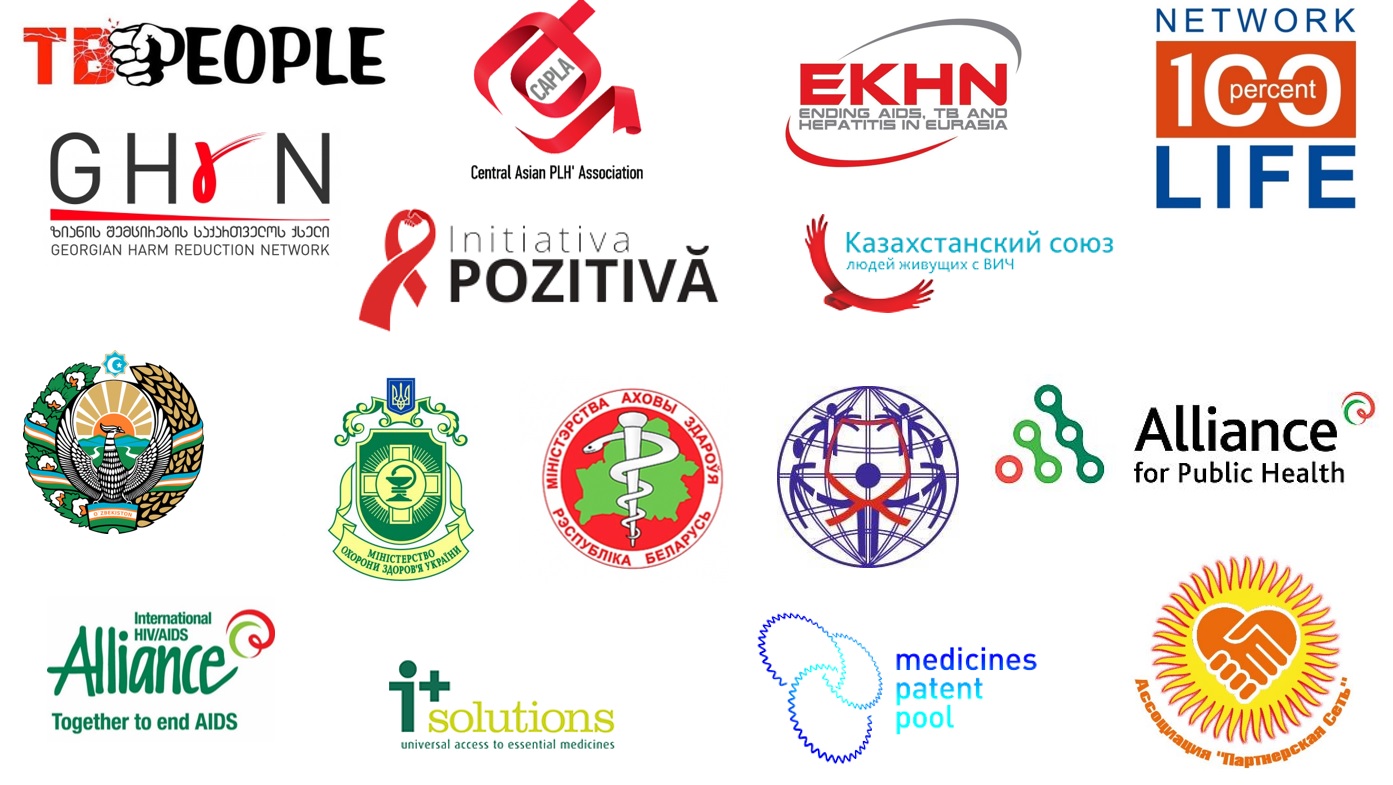On 26 June 2018, a performance campaign called Witch Hunt was held at noon opposite the building of the Cabinet of Ministers of Ukraine. Participants of the campaign – people who use drugs, community leaders and human rights activists – conducted an improvised performance to draw attention of the government and the society to the repressive drug policy and the problems, which hundreds of thousands of drug-dependent people in Ukraine have to face every day.
The performance depicted a “witch hunt”, during which an “inquisitor” wearing a police cap, together with people resembling public officials and a judge, was trying to burn a “witch” – a person who uses drugs – on an improvised fire.
Hundreds of black balloons with bars drawn on them were released into the sky to commemorate the people whose lives were lost to the repressive drug policy.
On this day, similar street campaigns within the global Support. Don’t Punish campaign are held in 205 cities in 93 countries of the world
The main slogans, which were voiced during the campaign at the Cabinet of Ministers:
- “We call the Government to abandon the policy of “war on drugs” = “witch hunt”
- “People who use drugs have the same rights as all other citizens of Ukraine and should not fall victims of ungrounded allegations, myths and stereotypes’
- “Ukraine should abandon ineffective and repressive drug policy”
- “Possession of drugs for personal use with no intent to sell should be immediately decriminalized”
- “Criminal prosecution of people who use drugs should be substituted with administrative sanctions”
During the performance, a relevant video was broadcast on the screen. There was also a music band “Fifth Trip” playing its songs. Through music, the players – young people who use drugs – protect their right to humane drug policy.
“It is the fifth year since the first street campaign was held on this day in Ukraine. Still we sadly observe that instead of responding to grave offenses, every day tens of thousands of law enforcers and millions of hryvnias from the state budget are spent on systematic criminal prosecution of thousands of drug-dependent people, who possess drugs for their personal use due to their chronic dependence! A whole army of prosecutors, judges and prison officers on a daily basis support this utterly ineffective repressive system of “countering illicit drug trafficking”, which is built based on the old Soviet approaches. Considering that our country strives for progressive changes, in particular in terms of human rights protection, we call the Ukrainian Government to stop the “witch hunt”, decriminalize drug dependent people and apply effective and progressive drug policies,” said Anton Basenko, leader of the Ukrainian Union of People Who Use Drugs (UkrPUD), who has a 20-year experience of drug use and who was one of the first patients of opoiod substitution treatment (OST) in Ukraine.
“Only in 2017, Ukrainian courts sentenced almost 9 thousand people for “illicit possession of drugs”, over 6.6 thousand (or 73%) of them were convicted just for possession of drugs for their personal use in the amounts for which there is no criminal responsibility in most countries of the European Union. From the Soviet times of repressions, Ukraine has preserved a system of “narcological registration”, which stipulates unrestricted exchange of information about drug dependent people among doctors and law enforcer, which is a gross violation of the Constitution of Ukraine as well as a number of international conventions. This scandalous situation should be urgently changed, and first of all such problems should be raised for consideration of the Goverment. We hope that the “tongues” of this symbolic “inquisition fire” will “burn the feet” of Ukrainian public officials who are responsible for developing and implementing the state drug policy,” summarized Pavlo Skala, Director: Policy and Partnership at Alliance for Public Health and co-coordinator of the global Support. Don’t Punish campaign in Ukraine.
On the same day, from 14:30 to 17:00 in Zhovten Cinema there was a series of documentary film screenings: A Day in the Life (about activists of the community of people who use drugs), Positive People (about the life of drug dependent people living with HIV and their daily struggles), and Fifth Therapy (social video based on a series of autobiographic novels by an Odesa poet, Stas Dombrovsky). All those films are dedicated to the topic of human rights and decriminalization of people who use drugs. They tell about the problems of such people and make an attempt to dispel the widespread myths about them.
Before the film screening, there was a press briefing, where authors and directors – Stas Dombrovsky, Sergiy Lysenko and Igor Kuzmenko – presented their films.
“It is not important how hard you fall, as long as you are alive, you can change everything and become a full-fledged person again, it is all in your hands – that is what our film is about,” said Stas Dombrovsky, scriptwriter and featured actor in the Fifth Therapy.
The activities in Kyiv were carried out within the global Support. Don’t Punish campaign, which was simultaneously held in 205 cities in 93 countries of the world! In Ukraine, the campaigns were also held in Odesa, Poltava, Sumy and Ivano-Frankivsk. They were organized by the Ukrainian Union of People Who Use Drugs (UkrPUD) with support of the Alliance for Public Health, 100% Life Network, the Eurasian Network of People Who Use Drugs (ENPUD), Meridian NGO, Club Eney NGO, Shans NGO, Parus NGO, All-Ukrainian League Legalife as well as representatves of civil society, governmental and international organizations.
# # # #
The global Support. Don’t Punish campaign is held on 26 June 2018 in 205 cities in 93 countries of the world. On this day, tens of thousands of civil society activists all over the world call the governments to stop the cruel and senseless war on drugs. Official website of 2018 campaign: http://supportdontpunish.org/day-of-action-2018/
In Ukraine, annual activities within the global Support. Don’t Punish campaign are held since 2013. Information about the last-year campaign is available at the website http://supportdontpunish.org/country/ua/day-of-action-ua-2017/
